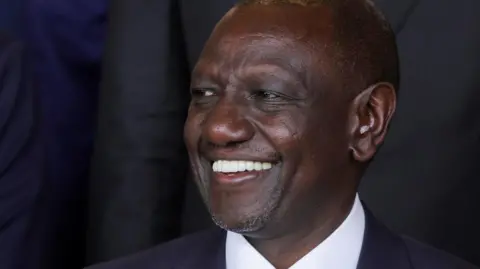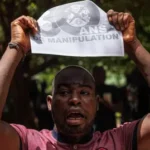In the vibrant political landscape of Kenya, few leaders have sparked as much conversation and curiosity as the country’s current president. Known for his charismatic leadership style and strong public presence, he has accumulated a surprising array of nicknames—some humorous, others more controversial—that reflect public perceptions, media portrayals, and political narratives. Among these, titles like “El Chapo” and “Deputy Jesus” stand out, each revealing different facets of his image and influence.
The Rise of Nicknames in Politics
Nicknames in politics are not new; they serve as shorthand to capture public sentiment, highlight particular traits, or satirize leadership styles. In Kenya, political figures often acquire monikers that resonate with the masses, sometimes affectionately, sometimes critically. These nicknames can shape a leader’s image, impact their popularity, or even influence policy discourse.
Why “El Chapo”?
One of the more startling nicknames attributed to Kenya’s president is “El Chapo,” referencing the infamous Mexican drug lord Joaquín Guzmán. This comparison has been used in Kenyan media and social circles, often in a satirical or critical context. Media outlets and social commentators have occasionally labeled him “El Chapo” in relation to allegations or perceptions of corruption, elite ties, or opaque dealings within government corridors.
While there’s no concrete evidence linking the president to criminal activities akin to Guzmán’s, the nickname underscores a narrative of perceived secrecy or control over certain economic or political networks. Critics argue that the moniker reflects concerns about corruption, impunity, or authoritarian tendencies, framing the president as a powerful figure wielding influence behind the scenes.
The “Deputy Jesus” Nickname
Perhaps more intriguingly, the president has been dubbed “Deputy Jesus” by supporters and critics alike. This nickname draws from his reputation for charismatic leadership, perceived moral authority, and efforts to promote social cohesion. Supporters see him as a unifying figure who embodies hope and moral uprightness—akin to a messianic figure guiding the nation.
However, critics argue that the moniker may be overly idealized or even ironic, pointing to instances where political decisions or policies have been questioned for their fairness or transparency. The nickname highlights the complex perception of the president as both a moral leader and a political actor navigating Kenya’s challenging landscape.
Media and Public Perception
Kenyan media plays a significant role in shaping and disseminating these nicknames. Social media platforms, in particular, serve as arenas for public humor, satire, and critique. Memes, hashtags, and viral posts have popularized nicknames, making them part of everyday political discourse.
For example, during election campaigns or political scandals, social media users might refer to the president using these monikers to express support, criticism, or satire. Such labels can influence how the public perceives leadership qualities, either humanizing the leader or casting aspersions.
The Power and Peril of Nicknames
While nicknames can humanize politicians and foster relatability, they can also pose risks. They may oversimplify complex issues or reduce a leader’s identity to a caricature. In some cases, they contribute to polarization, especially when rooted in misinformation or political rivalry.
In Kenya’s case, these nicknames reflect the multifaceted nature of political leadership—where charisma, controversy, and public perception intertwine. They serve as indicators of the nation’s vibrant political culture, where humor and critique coexist with serious governance.
Conclusion
Kenya’s president has earned a variety of nicknames—”El Chapo,” “Deputy Jesus,” and others—that encapsulate different narratives about his leadership. Whether highlighting alleged secrecy, moral authority, or popular satire, these titles reveal much about Kenya’s political climate and the ways citizens engage with their leaders. As Kenya continues to evolve politically, these nicknames will likely persist, reminding us that in the realm of leadership, perception often shapes reality as much as policies.
Email Us on editorial@nnafrica.com












